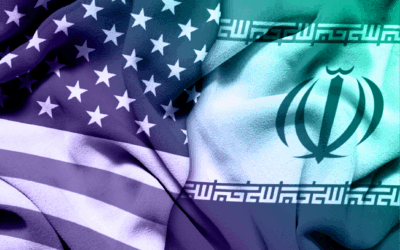September 5, 2023
By Daniel Silverberg, Co-head of Capstone’s National Security and Defense Practice
Global energy security continues to be at the forefront of geopolitics, supply chain management, economic, and electoral dynamics around the world. Russia’s 2022 invasion of Ukraine shook global energy markets in ways that are still playing out. However, we believe other notable, underappreciated developments risk adding gas to the energy security fire—developments that should remain top of mind for both companies and investors alike.
We believe notable, underappreciated developments risk adding gas to the energy security fire—developments that should remain top of mind for both companies and investors alike.
Several under-the-radar events just this past week highlight notable risks for global energy prices and directly implicate US and European security interests, and should not be taken for granted. These events reveal not only how the US continues to play an indispensable diplomatic role in the Middle East, despite allegations that the US is withdrawing from the region, but they also spotlight the limits of US influence in places like central Africa—an increasingly critical region to US economic interests and the battleground for US-China competition.
- Rising Kurdistan-Turkey Tensions Threaten European Oil Supply, More Regional Destabilization
Biden’s international energy envoy, Amos Hochstein, visited Ankara, Turkey this week to “discuss regional issues,” which likely involved efforts to resolve a longstanding oil dispute between Turkey and Iraq that could destabilize the entire region. Iraq sued Turkey a decade ago for importing Kurdish oil in apparent violation of a 50-year-old transit agreement to import oil from Kurdistan solely with Iraq’s consent. Iraq won a $1.5B judgment against Turkey last March, to which Turkey responded by shutting down the Iraq-Turkey pipeline altogether, depriving European oil markets of 500,000 barrels daily. According to experts, this blockade has destabilized Kurdistan – already nearly bankrupt – and provided an opening for ISIS to reestablish itself in the region. The blockade has also undercut Iraq’s federal government (Iraq has apparently lost at least $3.4B from Turkey’s blockade) and could provide ground for Russia and Iran to fill the void in the region. Gulf Keystone, the oil company exploring the largest oil field in Kurdistan, threatened this week it might not continue as an ongoing concern given the shutdown.
Biden has a long history with Kurdistan – he has strong relationships there since his days as chairman of the Senate Foreign Relations Committee and is seen as a longtime sympathizer. He made Kurdistan one of his first foreign visits as vice president in 2009. Failure to make progress on convincing Turkey to reopen the pipeline could be devastating. Kurdistan could devolve into civil war, and Iraq’s government could find itself equally bankrupt and even more dependent on Iran. Bottom line, this chaos could destabilize the region and deprive Europe of oil at the exact time it is struggling to compensate for Russian imports.
- Regional Conflict Brewing Threatening Lebanon’s Gas Moment
Hezbollah and Israel are perennially at war, but tensions recently have reached a near boil after Hezbollah launched a series of attacks against Israel and set up tents in territory claimed by Israel. Meanwhile, a long-expected gas exploration rig arrived off the coast of Lebanon this past week after Lebanon and Israel reached a maritime border agreement last October, negotiated by the United States. If Lebanon finds gas, it could be a regional game changer. The gas would provide significant revenue for cash-starved Lebanon, weaken Iranian influence, and serve as a coolant on Israel-Lebanon tensions. White House envoy Amos Hochstein was dispatched from Turkey to Lebanon to address this latest crisis (a tweet he sent from Beirut garnered 330,000 views, highlighting intense regional focus on this issue). Reducing tensions between Israel and Hezbollah is critical to preventing broader regional conflict and providing space for Lebanon’s gas infrastructure to come online.
- Gabon Coup Signals Burgeoning Global Energy Risk from African Instability
Gabon experienced a military takeover this week after its president was detained and an army general took power. Gabon is the seventh African country to experience a coup in the last two years, and several other countries, such as Sierre Leone, are teetering on the brink of collapse. In one light, Gabon’s political collapse is neither surprising or particularly impactful on global energy security – the country has been ruled by an autocratic family for the last 50 years, and Gabon’s oil production has declined over the last few years (it is the second-smallest OPEC oil producer at 200,000 barrels daily and a relative energy “minnow”). However, the pattern of political instability in Africa poses a threat to US security. China and Russia both drive and directly benefit from these coups and have their sights set on resource-rich countries like Niger (Niger’s junta called on the Wagner Group to fortify its position). The instability also exacerbates terrible humanitarian conditions, which give succor to terrorist-linked groups. We assessed earlier this year Africa’s indispensable role for the US energy transition, and continued instability there undercuts key US economic and security initiatives.
The pattern of political instability in Africa poses a threat to US security.
Takeaways from these developments:
- While Secretary Raimondo’s visit to China and ongoing conflict in Ukraine capture the headlines (see Capstone analysis here on Raimondo’s diplomacy), there are key developments off the radar screen that could have serious impact on US energy and national security interests.
- Despite claims the US influence is declining in the Middle East, the US is very much present and relied upon as a broker for key disputes, including the Israel-Lebanon tensions and Turkey-Iraq gas dispute. However, the same cannot be said for US presence in Africa — the coups have exposed the limit of US influence in Central Africa, and there seems to be limited US ability to impact dynamics in the region.
- Failure to address the Turkey-Iraq dispute; the Hezbollah-Israel land conflict; and the coups in Africa could spell trouble for President Biden’s broader agenda to safeguard the green energy transition and ensure supply chain diversification from China. It appears the Administration has a small number of experts to rely upon to address these challenges, and we keep seeing similar troubleshooters dispatched globally to address these challenges.
Capstone will continue to closely follow the myriad of underappreciated global dynamics that will continue to have implications for global energy security for both our corporate and investor clients.

Daniel Silverberg, Co-head of Capstone’s National Security and Defense Practice
Read more from Daniel:
Biden’s Restrictions on Investment into China Is Just the Start of Chinese Investment Risk
Why Global Infrastructure is the Most Consequential Aspect of Biden’s China Policy
Outlook for US Outbound Investment Restrictions
Read Daniel’s bio here.



























